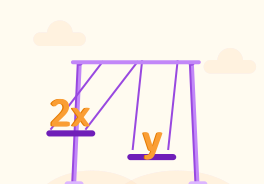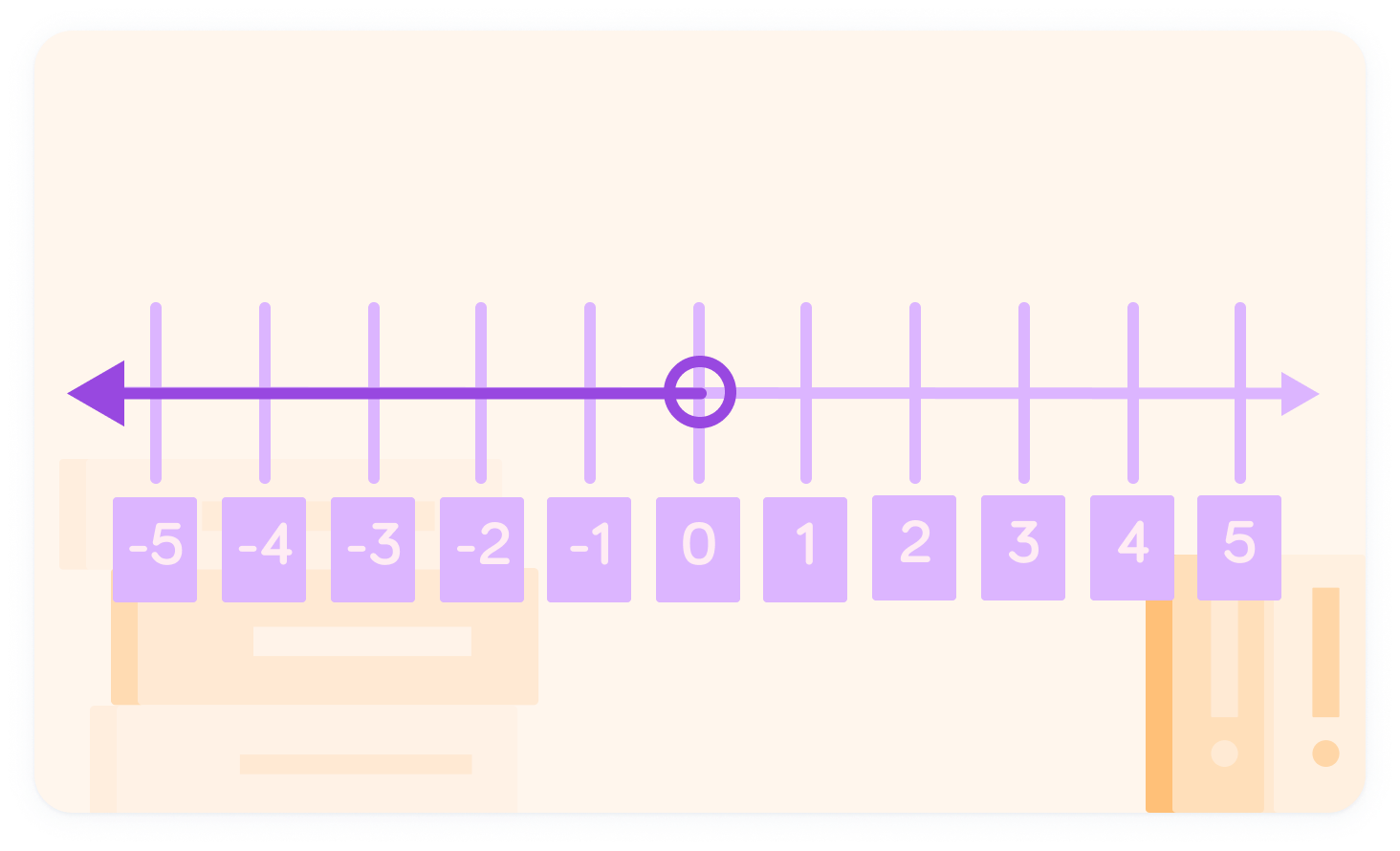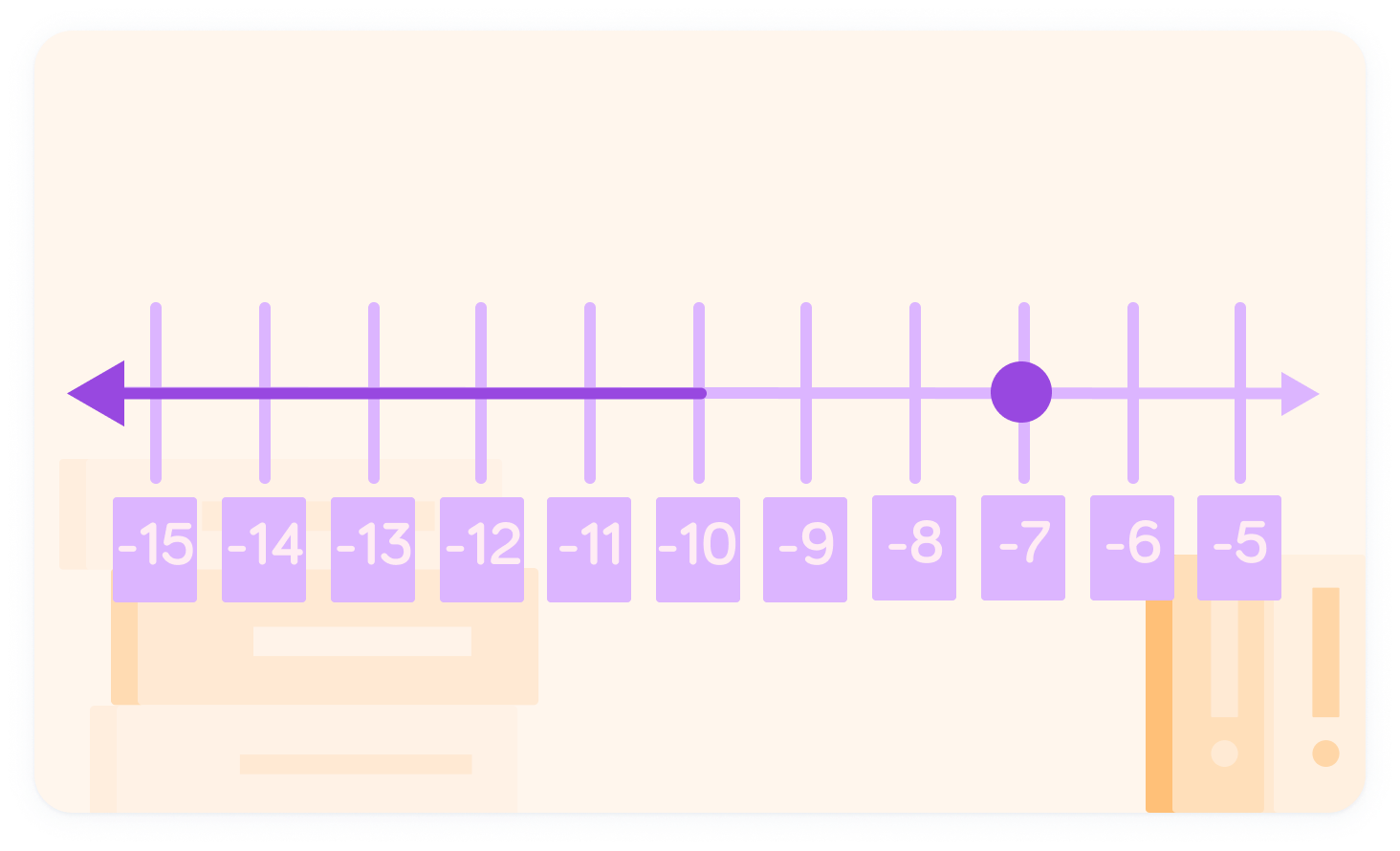YOU ARE LEARNING:
Linear Inequalities 1

Linear Inequalities 1
Unlike an equation, inequalities can have a range of values as solutions.
Unlike equations, inequalities specify a particular set of values as the solution, rather than one or two specific values.
It involves using some symbols instead of the = sign.
5>3
This means that 5 is greater than 3. Notice that the larger end of the > is with the larger number, 5.
10<20
This means that 10 is less than 20. Notice that the smaller end of the < is with the smaller number, 10.
What does x<10 mean?

We also find these symbols in algebra, indicating that there are a range of solutions.
Let's try solving x+5<6 to find x
Look at the symbol
It shows that x+5 is less than 6. We can treat this in the same way as an equation, and subtract 5 from both sides to isolate x.
Subtract 5 from both sides

The solution is x<1
Therefore, x can be any value less than 1.
We can display x<1 on a number line
x can be any value less than 1. The OPEN circle at 1 indicates that the inequality does not include 1.

Solve x−7>10

Solve 5+x≤−2

We can also display x≤−7 on a number line
This time, the filled circle indicates that the inequality does include −7.

Great work! 🙌
Most of the ways you manipulate equations work for inequalities, except for division by a negative number. In this case, you have to reverse the direction of the inequality sign.
For example: 3−x<5
As normal, subtract 3 from both sides
−x<2
We have −x, but we need x
We need to divide by a negative number to get x. This means that we need to switch the direction of the inequality sign.
Divide by -1 and switch the sign
−x<2 → x>−2
Solve 4−2x<10

Try another one! 17<5−3x

